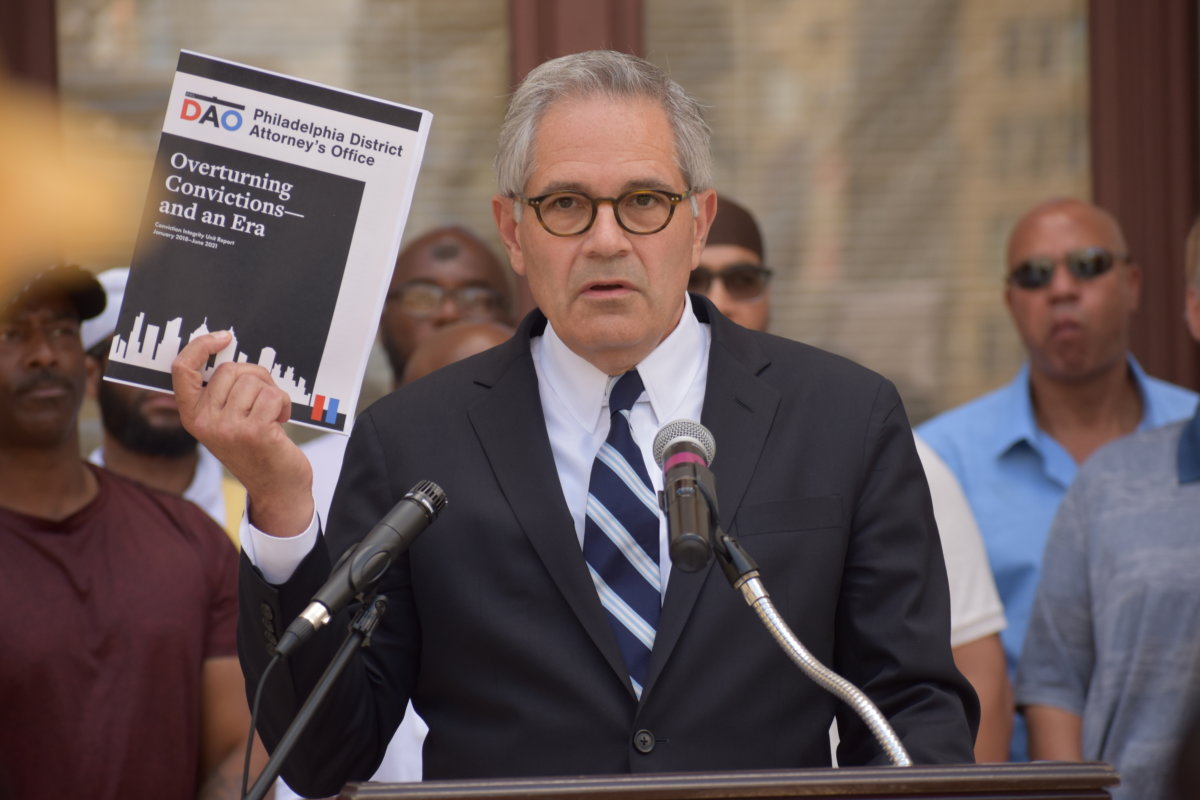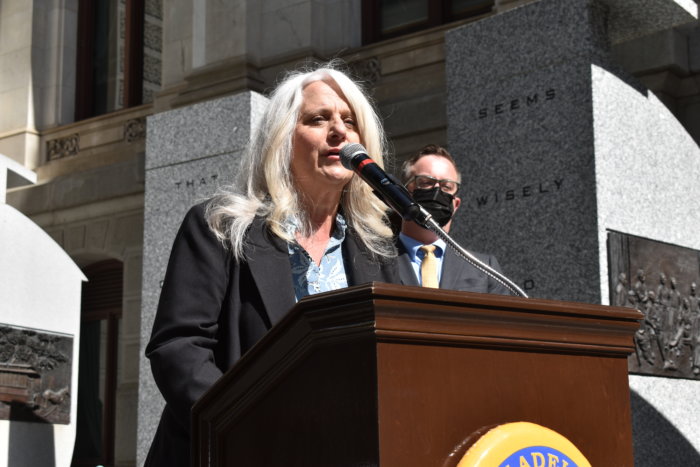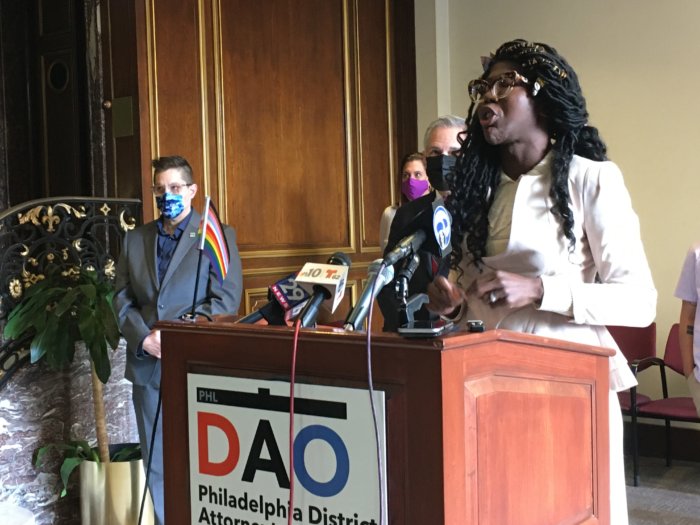District Attorney Larry Krasner and several men exonerated under his watch didn’t dance on Frank Rizzo’s grave, but they came pretty close.
They stood triumphantly Tuesday in the spot across from City Hall where Rizzo’s statue once loomed large, before it was removed last year in the wake of massive Black Lives Matter protests.
It was a photo opportunity, a symbolic one, to coincide with the release of a report called “Overturning Convictions — and an Era,” which details the work of Krasner’s Conviction Integrity Unit over the past few years.
Since 2018, the team has worked to free 20 people, nearly all of whom were convicted of first or second-degree murder. All told, they served a combined 384 years behind bars, according to the report.
Rizzo, the combative former mayor and police commissioner, “stood for racist and brutal policing,” Krasner told reporters.
“We would like to think that there’s kind of a new sheriff in town,” he said.
Krasner expanded the Conviction Integrity Unit after taking office and touted its work on the campaign trail prior to last month’s Democratic primary election, which he won handily.
For decades, Krasner said, the criminal justice system “put winning cases first and put the truth second,” and the CIU’s job is to rectify the situation.
“When wrongful convictions occur, when innocent people are convicted, the damage is widespread,” said Assistant District Attorney Patricia Cummings, who leads the unit. “Everyone suffers. The victims of the crime suffer.”
“The damage that occurs to the community is also unspeakable because what we’re left with when we see how incredibly fallible the system is, and sometimes how incredibly corrupt and racist the system is, we lose faith in our leaders,” she added. “We lose faith in our system.”
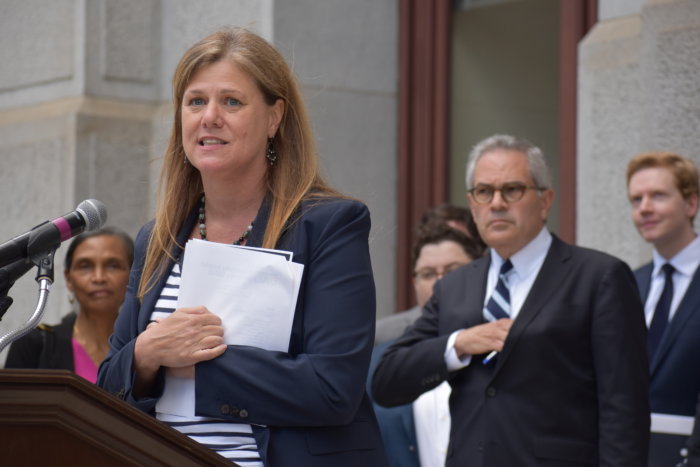
All but two of the exonerees under Krasner’s regime are Black men, and, of the 21 cases (one man was cleared in two separate murder cases), 20 involved misconduct on the part of prosecutors or police officers.
Witness tampering occurred in a dozen cases, and authorities lied in court to help convict 10 of the people who were later exonerated, according to the report. The CIU is currently investigating 88 cases and has a backlog of 1,165 applications to be reviewed, with 149 submissions sent to the unit this year through June 1.
Prisoners sentenced to death or life without the possibility of parole are prioritized, the report said.
Terrance Lewis, who was released two years ago after being cleared of a 1996 murder, described feeling “euphoria” when he stepped out of prison for the first time in 21 years.
“The work that they’re doing to date is phenomenal,” he said of the CIU at a news conference Tuesday. “We are the fruits of said work.”
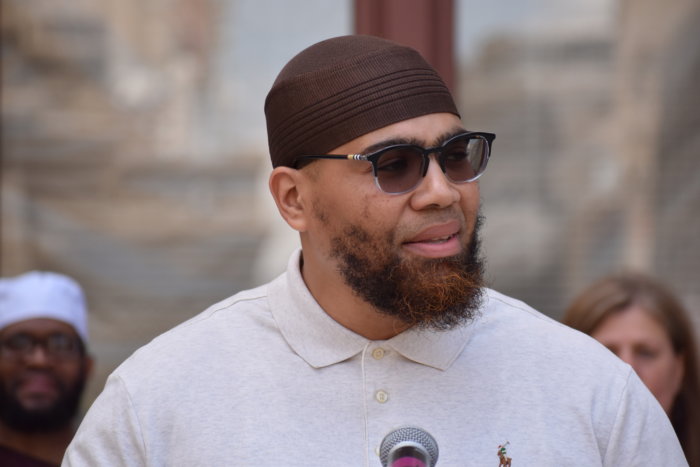
Cummings said the unit has faced challenges. Judges have not always been on board, and the Philadelphia Police Department has declined to reopen cases when the original suspect has been exonerated, the report said.
In some instances, homicide detectives have cited a lack of resources; and, other times, investigators believe the right guy was behind bars, Cummings said.
Until recently, the PPD also made it difficult for attorneys within the unit to access case files, according to the report.
Police Commissioner Danielle Outlaw said the department was not able to comment on the report Tuesday because it had not received a copy of the document.
“After we receive the report and have time to review its contents, we would be happy to provide a comment on its findings,” she said in a statement, adding that the department “encourages open lines of communication and collaboration with other agencies.”
“I believe we all have to work together,” Cummings said. “We’ve got to collaborate. We’ve got to say, ‘We’re in this together.’”



